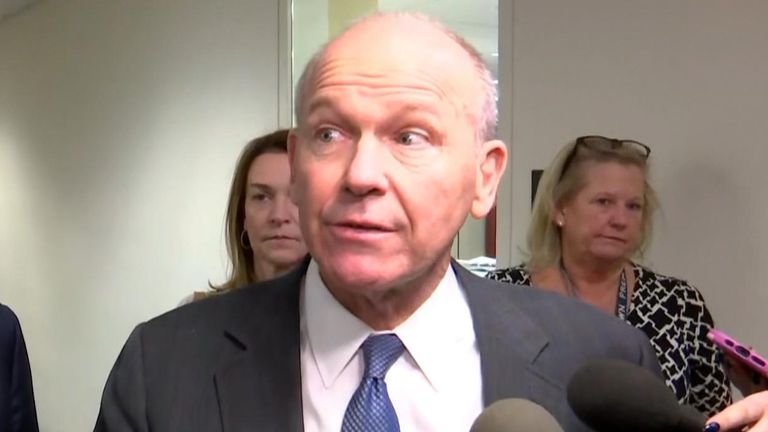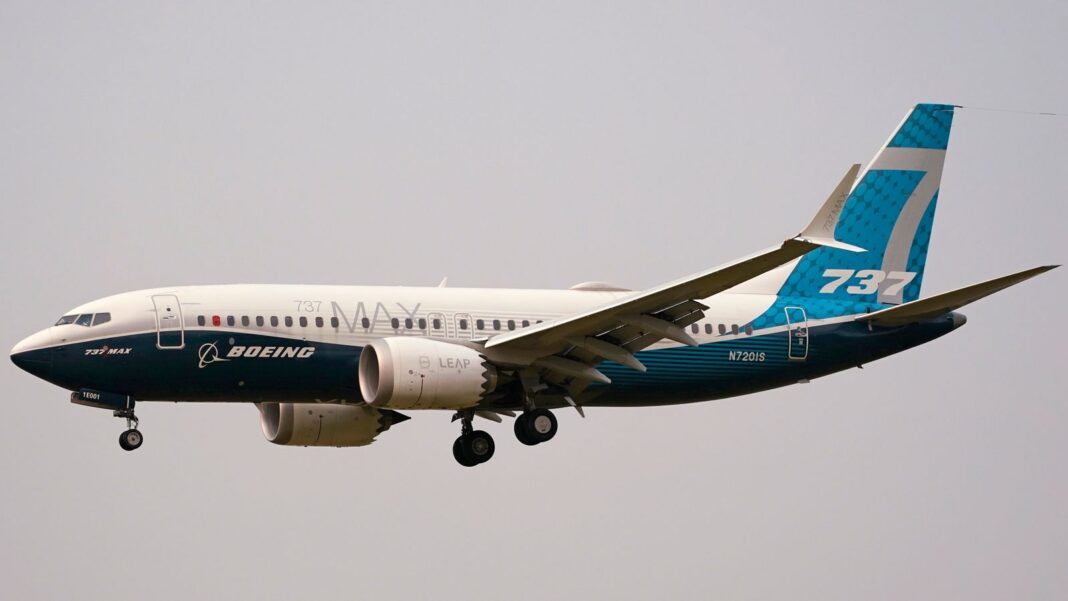Boeing is to plead guilty to a criminal fraud conspiracy charge to resolve a US investigation into two fatal 737 MAX crashes.
An official at the US Department of Justice (DoJ) revealed overnight that Boeing would pay a $243.6m (£190.1m) fine and invest at least $455m (£355m) over three years to strengthen its safety and compliance programmes as part of the plea deal.
The settlement, which Boeing acknowledged but did not comment on, marks the second time the planemaker has been offered a plea bargain by the department relating to the crashes of 2018 and 2019 that were blamed on flawed flight control software.
A total of 346 people died in the incidents which involved a Lion Air MAX 8 flight in Indonesia and then, six months later, Ethiopian Airlines Flight 302 outside Addis Ababa.
American investigators search through debris after Ethiopian Airlines Flight 302 came down. Pic: Reuters
Relatives of those killed, who accused US authorities of letting Boeing off the hook through a $2.5bn (£1.95bn) settlement in 2021, had demanded last month a fresh fine of almost $25bn (£19.7bn).
They also sought the imposition of criminal proceedings.
The new settlement with the DoJ, which was described by a lawyer for the families as a “sweetheart deal”, will ensure there is no trial.
Officials filed a case in May which accused the planemaker of breaching the terms of the deferred prosecution agreement in 2021.
The terms of that deal were due to expire in January this year but, two days beforehand, a Boeing 737 MAX 9 aircraft operated by Alaska Airlines suffered a mid-air panel blowout.
The incident has been the subject of multi-agency investigations, including by the DoJ, since.
Please use Chrome browser for a more accessible video player

0:27
Boeing CEO: ‘We fly safe planes’
Boeing denied that it had violated the terms of the deferred prosecution agreement through its production practices ahead of the MAX 9 Alaska Airlines accident.
While the guilty plea to a conspiracy to defraud charge and sums to be paid under the latest deal will come as a blow to the families, the terms are yet to be ratified in court.
Lawyers for some of the relatives said they planned to press Texas judge Reed O’Connor, who has been overseeing the case, to reject the deal.
The conviction potentially threatens Boeing’s ability to secure lucrative government contracts.
The agreement only covers Boeing’s conduct before the fatal crashes and does not shield the company from any other potential investigations or charges related to the January incident or other conduct.
Boeing is pleading guilty to making knowingly false representations to the Federal Aviation Administration about having expanded a key software feature used on the MAX to operate at low speeds.
The new software saved Boeing money by requiring less intensive training for pilots.
The company has always denied placing profits before safety.







